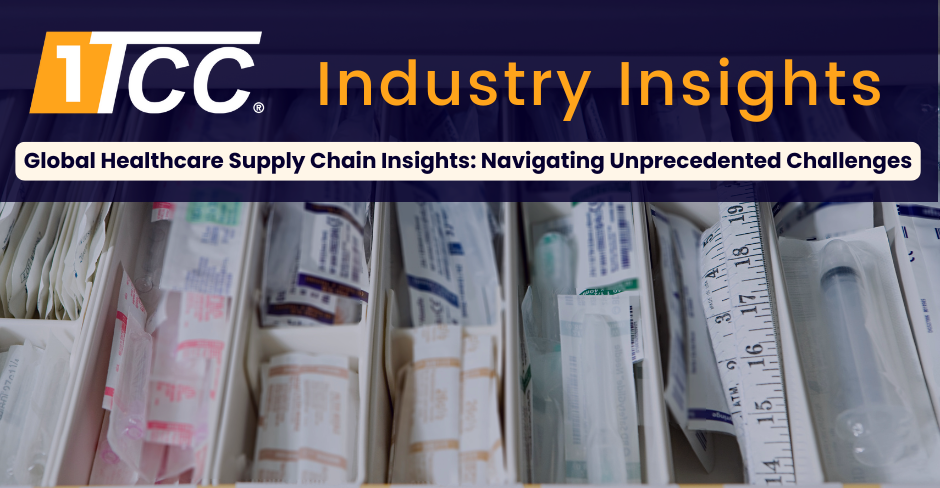
Global Healthcare Supply Chain Insights: Navigating Unprecedented Challenges
Introduction
In today's rapidly evolving healthcare landscape, supply chain resilience is more crucial than ever. As the industry grapples with an array of challenges—from geopolitical tensions and regulatory changes to technological vulnerabilities and environmental disruptions—companies must adapt quickly to maintain stability and ensure the availability of essential medical supplies. This newsletter explores recent developments affecting the global healthcare supply chain, analyzing how organizations navigate these complexities through strategic partnerships, innovation, and a focus on sustainability.
Geopolitical and Regulatory Impacts on Healthcare Supply Chains
German pharmaceutical firms are bracing for potential drug shortages as China's new anti-espionage laws disrupt foreign employees' work, impacting production and supply chains. As a major supplier of essential ingredients used in medications, China's restrictions pose a significant threat to global drug availability. Meanwhile, Australia's healthcare system is facing a shortage of IV fluids, prompting government intervention to ensure hospitals have access to critical supplies. These drastic shifts in global supply chains in the healthcare sector have led other countries to proactively prepare for similar shortages.
In response to these challenges, the European Union has proposed the Critical Medicines Act to combat shortages of essential drugs and ingredients. This legislation aims to diversify supply chains and reduce dependencies on non-European sources, reflecting a broader trend of reshoring and reducing reliance on global supply chains. Similarly, the US Biosecure Act has significantly boosted India’s pharmaceutical industry by prohibiting U.S. federal bodies from sourcing equipment and services from Chinese companies, further reshaping global supply chain dynamics.
The Indian Pharmaceutical Industry is seeing a 49% increase in deals as a result of these policies, securing over $4.1 billion with over 55 deals, according to Business Standard. Mergers and Acquisitions also increased more than threefold, indicating robust growth and consolidation in the country.
Strategic Shifts and Market Growth
Amid these geopolitical shifts, companies are strategically adapting to maintain resilience. The med-tech sector has seen a 29% YoY growth in 2024, raising $13.84 billion in the first half of the year which reflects an optimistic outlook for big companies and the way they organize inventory. Johnson & Johnson has set ambitious long-term financial targets, including a 5%-7% CAGR from 2025 to 2030, focusing on expansion in interventional cardiovascular, robotics, and digital spaces.
Pharma firms are also rethinking their supply chain strategies, shifting from “just-in-case” to “just-in-time” inventory models due to high interest rates and inflation, which have made large inventories more expensive. This shift aligns with efforts to decouple from geo politically unstable regions, ensuring more agile and responsive supply chains to growing demand in medical devices.
领英推荐
Technological Innovation and Market Expansion
Technological advancements are playing a crucial role in enhancing supply chain resilience. According to GlobeNewswire the medical device reprocessing market is expected to hit $9.63 billion by 2032, driven by the growth in surgical procedures and the rising need for durable medical equipment. Similarly, the medical device analytical testing outsourcing market is projected to reach $10.87 billion by 2034, reflecting a growing demand for reliable and efficient medical devices.
Companies like Rusan Pharma are capitalizing on these trends by expanding into the US API market, focusing on addiction treatment and pain management. Samsung Biologics has also joined the Pharmaceutical Supply Chain Initiative, committing to responsible practices in ethics, labor, health, safety, and environmental management systems, furthering their ambitions for sustainable growth.
Challenges and Resilience in the Healthcare Industry
Despite these advancements, the healthcare supply chain faces ongoing challenges. GE Healthcare has been forced to revise its revenue growth forecast following China’s crackdown on corruption, which has significantly impacted sales in the region. Additionally, BD’s decision to wind down operations at its plant in Ireland highlights the ongoing need for companies to optimize their operations for efficiency and resilience.
Looking ahead, the global healthcare market is projected to reach $665.37 billion by 2028 according to a Benchmark International report, with an increasing focus on sustainability, resilience, and digitization. Mergers and acquisitions are expected to rise as the industry consolidates and adapts to the evolving challenges of the 21st century.
Conclusion
The global healthcare industry is at a critical juncture, with supply chain disruptions posing significant challenges to the availability and distribution of essential medical supplies. To navigate these challenges, companies must invest in strategic partnerships, technological innovation, and supply chain diversification. As the landscape continues to shift, resilience and adaptability will be key to ensuring the stability and sustainability of healthcare operations worldwide.